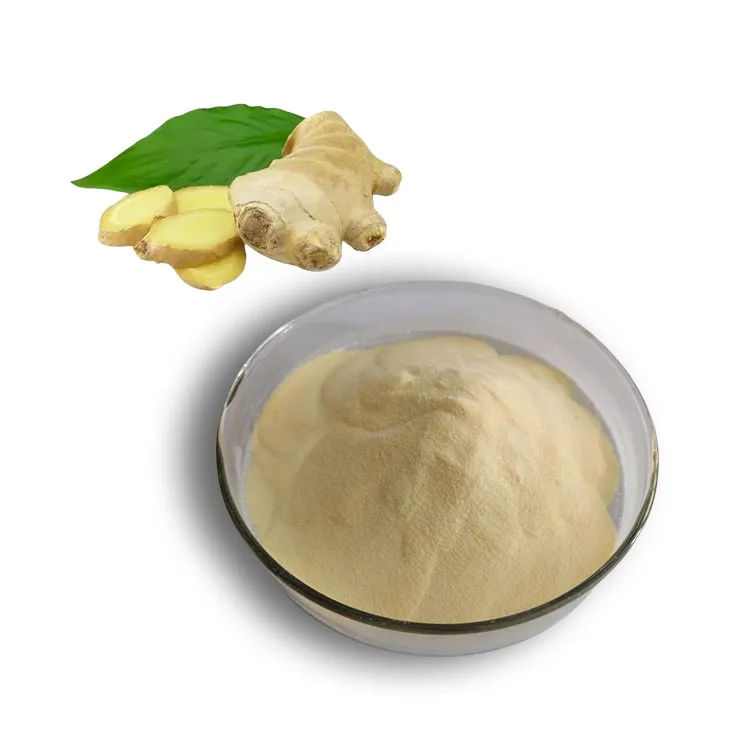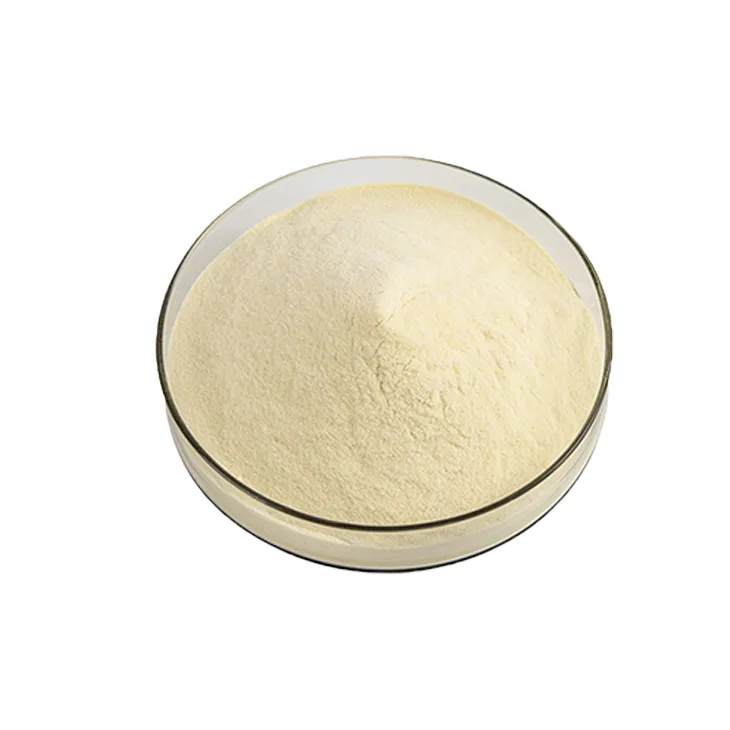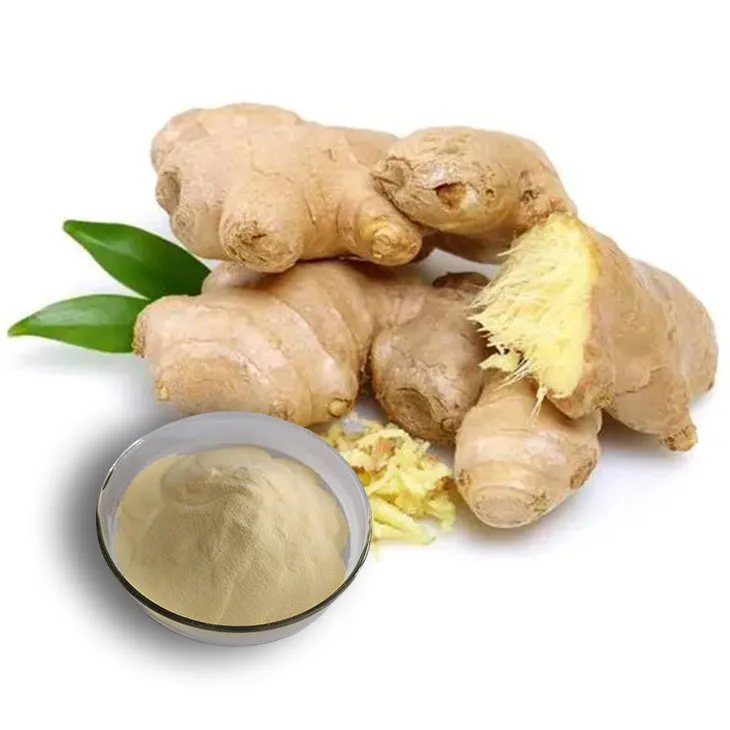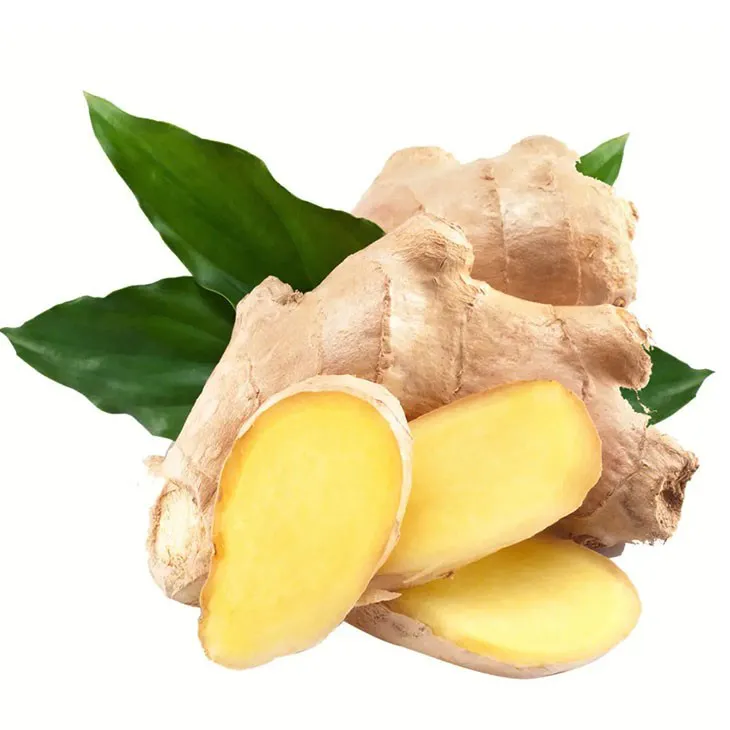- 0086-571-85302990
- sales@greenskybio.com
Organic non - transgenic ginger extract.
2024-12-01

1. Introduction
Organic non - transgenic Ginger Extract is making a name for itself as a highly valuable ingredient across a diverse range of industries. Ginger, in its pure, organic and non - transgenic form, serves as the basis for an extract that is rich in natural properties. The extraction process is carefully designed to safeguard the integrity of the ginger's essential components. This not only ensures the quality of the extract but also maximizes its potential applications.

2. Components of Ginger Extract
The Ginger Extract contains a variety of important components, with phenolic compounds being among the most significant. These phenolic compounds are fundamental to the functionality of the extract. They contribute to the many health - promoting and practical properties that ginger extract is known for.

3. Applications in the Dietary Supplement Market
3.1 Immune System Boost
In the dietary supplement market, the organic non - transgenic ginger extract is in high demand. One of the primary reasons is its ability to boost the immune system. It contains nutrients and bioactive compounds that help the body's natural defense mechanisms function more effectively. This makes it a popular choice for those looking to enhance their overall health and well - being.
3.2 Circulation Improvement
Another important benefit is its role in improving circulation. By promoting better blood flow throughout the body, it can have a positive impact on various aspects of health. This includes reducing the risk of certain cardiovascular problems and improving the delivery of oxygen and nutrients to cells.
3.3 Nausea Reduction
Ginger has long been recognized as a traditional remedy for nausea. The extract retains this property and is thus highly effective in reducing nausea. It can be used to relieve the discomfort associated with motion sickness, morning sickness during pregnancy, or nausea caused by certain medical treatments.
4. Applications in the Culinary World
4.1 Flavor Enhancement
In the culinary world, ginger extract is a prized ingredient. It imparts a unique and spicy flavor to a wide variety of dishes. Whether it is used in sweet or savory recipes, it adds a distinct and appealing taste. For example, in Asian cuisine, it is commonly used in stir - fries, curries, and desserts. In Western cuisine, it can be found in gingerbread, cookies, and certain meat dishes.
5. Anti - Microbial Properties and Food Preservation
The ginger extract also exhibits anti - microbial properties. This makes it a potential candidate for use as a natural preservative in the food industry. With the increasing demand for clean - label and natural products, the use of ginger extract in food preservation is an area of growing interest. It can help inhibit the growth of harmful microorganisms such as bacteria and fungi, thereby extending the shelf life of food products.
6. The Trend Towards Natural and Sustainable Products
6.1 Consumer Preference
The trend towards natural and sustainable products has had a significant impact on the popularity of organic non - transgenic ginger extract. Consumers are increasingly seeking products that are free from artificial additives and genetically modified organisms. They are more conscious of the origin and production methods of the ingredients they consume. Ginger extract, with its organic and non - transgenic nature, meets these consumer demands.
6.2 Environmental Considerations
In addition to consumer preferences, there are also environmental considerations. Organic farming methods used to grow ginger are generally more sustainable than conventional farming. They often involve fewer chemical inputs, which can have a positive impact on soil health, water quality, and biodiversity. This makes the production of organic non - transgenic ginger extract an environmentally friendly choice.7. Production and Quality Control of Ginger Extract
7.1 Production Process
The production of ginger extract involves several steps. First, high - quality organic non - transgenic ginger is carefully selected. Then, it undergoes a process of cleaning and preparation. After that, the extraction process, which may involve methods such as solvent extraction or steam distillation, is carried out to obtain the extract. Finally, the extract is purified and concentrated to the desired potency.
7.2 Quality Control
Quality control is crucial in the production of ginger extract. This includes testing for the presence of contaminants, ensuring the correct concentration of active components, and verifying the purity of the extract. Stringent quality control measures are necessary to ensure that the final product meets the high standards required by various industries.8. Future Prospects of Organic Non - Transgenic Ginger Extract
8.1 Expansion in Existing Markets
The future looks bright for organic non - transgenic ginger extract. In the dietary supplement market, as awareness of its health benefits continues to grow, the demand is likely to increase further. In the culinary world, chefs and food manufacturers may explore new ways to incorporate it into their products, leading to expanded use.
8.2 Exploration of New Applications
There is also potential for the exploration of new applications. For example, in the cosmetics industry, ginger extract may be used for its antioxidant and anti - inflammatory properties. In the pharmaceutical industry, it could be further studied for its potential in treating various diseases.
8.3 Meeting the Challenges of Scalability
However, to fully realize its potential, there are challenges to be overcome. One of the main challenges is scalability. As demand grows, producers need to find ways to increase production while maintaining the quality of the extract. This may involve improving farming practices, optimizing the extraction process, and investing in larger - scale production facilities.9. Conclusion
In conclusion, organic non - transgenic ginger extract is a versatile and valuable ingredient with a wide range of applications. Its health - promoting properties, culinary uses, and potential in food preservation make it an important component in various industries. With the trend towards natural and sustainable products, its significance is only set to increase. However, to ensure its continued success, careful attention must be paid to production quality, exploration of new applications, and meeting the challenges of scalability.
FAQ:
What are the main components preserved in the organic non - transgenic ginger extract?
The main components preserved in the organic non - transgenic ginger extract are phenolic compounds, which play a crucial role in its functionality.
Why is the organic non - transgenic ginger extract in high demand in the dietary supplement market?
It is in high demand in the dietary supplement market because it can boost the immune system, improve circulation, aid in reducing nausea and has been a traditional remedy for such ailments.
How does the organic non - transgenic ginger extract contribute to the culinary world?
In the culinary world, it imparts a unique and spicy flavor to dishes.
What makes the organic non - transgenic ginger extract a potential candidate for natural preservatives in the food industry?
Its anti - microbial properties make it a potential candidate for natural preservatives in the food industry.
Why is the organic non - transgenic ginger extract becoming more significant?
The trend towards natural and sustainable products has further increased the significance of this organic non - transgenic ginger extract.
Related literature
- The Bioactive Compounds in Ginger and Their Health - Promoting Effects"
- "Organic Ginger: Cultivation, Properties and Applications"
- "The Role of Non - Transgenic Organics in the Modern Food Industry"
- ▶ Hesperidin
- ▶ Citrus Bioflavonoids
- ▶ Plant Extract
- ▶ lycopene
- ▶ Diosmin
- ▶ Grape seed extract
- ▶ Sea buckthorn Juice Powder
- ▶ Fruit Juice Powder
- ▶ Hops Extract
- ▶ Artichoke Extract
- ▶ Mushroom extract
- ▶ Astaxanthin
- ▶ Green Tea Extract
- ▶ Curcumin
- ▶ Horse Chestnut Extract
- ▶ Other Product
- ▶ Boswellia Serrata Extract
- ▶ Resveratrol
- ▶ Marigold Extract
- ▶ Grape Leaf Extract
- ▶ New Product
- ▶ Aminolevulinic acid
- ▶ Cranberry Extract
- ▶ Red Yeast Rice
- ▶ Red Wine Extract
-
Astaxanthin
2024-12-01
-
Fenugreek Extract Powder
2024-12-01
-
Bitter Melon Extract
2024-12-01
-
Eucommia Ulmoides Extract
2024-12-01
-
Yohimbine Bark Extract
2024-12-01
-
Maitake Mushroom Extract
2024-12-01
-
Agaricus Blazei Extract
2024-12-01
-
Saffron Extract Powder
2024-12-01
-
Rosemary extract
2024-12-01
-
Cranberry Extract
2024-12-01





















